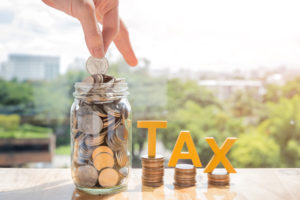Economic Impact Payments: What you need to know?

No action needed by most people at this time!
WASHINGTON — The Treasury Department and the Internal Revenue Service today announced that distribution of economic impact payments will begin in the next three weeks and will be distributed automatically, with no action required for most people. However, some seniors and others who typically do not file returns will need to submit a simple tax return to receive the stimulus payment.
Who is eligible for the economic impact payment?
Tax filers with adjusted gross income up to $75,000 for individuals and up to $150,000 for married couples filing joint returns will receive the full payment. For filers with income above those amounts, the payment amount is reduced by $5 for each $100 above the $75,000/$150,000 thresholds. Single filers with income exceeding $99,000 and $198,000 for joint filers with no children are not eligible.
Eligible taxpayers who filed tax returns for either 2019 or 2018 will automatically receive an economic impact payment of up to $1,200 for individuals or $2,400 for married couples. Parents also receive $500 for each qualifying child.
How will the IRS know where to send my payment?
The vast majority of people do not need to take any action. The IRS will calculate and automatically send the economic impact payment to those eligible.
For people who have already filed their 2019 tax returns, the IRS will use this information to calculate the payment amount. For those who have not yet filed their return for 2019, the IRS will use information from their 2018 tax filing to calculate the payment. The economic impact payment will be deposited directly into the same banking account reflected on the return filed.
The IRS does not have my direct deposit information. What can I do?
In the coming weeks, Treasury plans to develop a web-based portal for individuals to provide their banking information to the IRS online, so that individuals can receive payments immediately as opposed to checks in the mail.
I am not typically required to file a tax return. Can I still receive my payment?
Yes. People who typically do not file a tax return will need to file a simple tax return to receive an economic impact payment. Low-income taxpayers, senior citizens, Social Security recipients, some veterans and individuals with disabilities who are otherwise not required to file a tax return will not owe tax.
How can I file the tax return needed to receive my economic impact payment?
IRS.gov/coronavirus will soon provide information instructing people in these groups on how to file a 2019 tax return with simple, but necessary, information including their filing status, number of dependents and direct deposit bank account information.
I have not filed my tax return for 2018 or 2019. Can I still receive an economic impact payment?
Yes. The IRS urges anyone with a tax filing obligation who has not yet filed a tax return for 2018 or 2019 to file as soon as they can to receive an economic impact payment. Taxpayers should include direct deposit banking information on the return.
I need to file a tax return. How long are the economic impact payments available?
For those concerned about visiting a tax professional or local community organization in person to get help with a tax return, these economic impact payments will be available throughout the rest of 2020.
Where can I get more information?
The IRS will post all key information on IRS.gov/coronavirus as soon as it becomes available.
The IRS has a reduced staff in many of its offices but remains committed to helping eligible individuals receive their payments expeditiously. Check for updated information on IRS.gov/coronavirus rather than calling IRS assistors who are helping process 2019 returns.
GROCO remains open and available to answer tax, family office and implications of COVID-19 pandemic.
How to be a “Tax-Conscious” Investor
How to be a “Tax-Conscious” Investor “Uncle Sam wants you!” goes the slogan on that old poster. He also wants you to pay taxes. On the income from your employment. On what you earn from many of your investments. On a portion of the gain from the sale of those investments. But there is a…
President Going After the Wealthy Again With Proposed Tax Hikes
President Going After the Wealthy Again With Proposed Tax Hikes By Alan Olsen, CPA, MBA (tax) Managing Partner Greenstein Rogoff Olsen & Co. LLP The divide between Republicans and Democrats on Capitol Hill appears to be spreading even wider after President Obama used his State of the Union Address to take dead aim at high…
Top 10 Critical Mistakes Homebuyers Make and How to Avoid Them
[vc_row][vc_column][vc_column_text]1. Using an out-of-town lender. Getting a mortgage in a timely and hassle-free manner is the “key that opens the door” to your new home. Lenders who don’t live in the area you are buying in will not have the contacts needed to process your loan in an efficient and timely manner. Are you aware that…
Depreciation and Section 179 Expense Updates
Depreciation and Section 179 Expense Updates 2007 Changes Increased section 179 limits. The maximum section 179 deduction you can elect for qualified section 179 property placed in service in 2007 has increased to $125,000 ($160,000 for qualified enterprise zone and qualified renewal community property). This limit is reduced by the amount by which the cost of…



